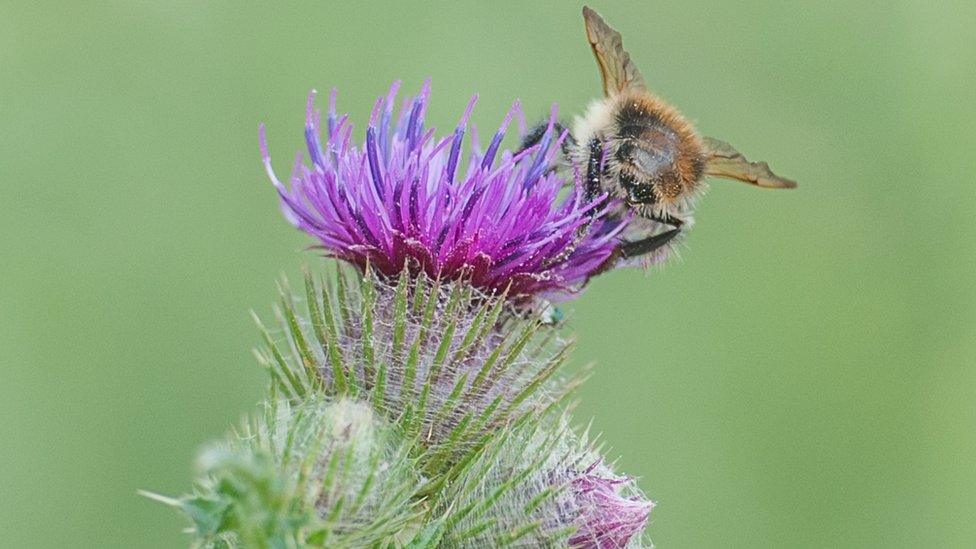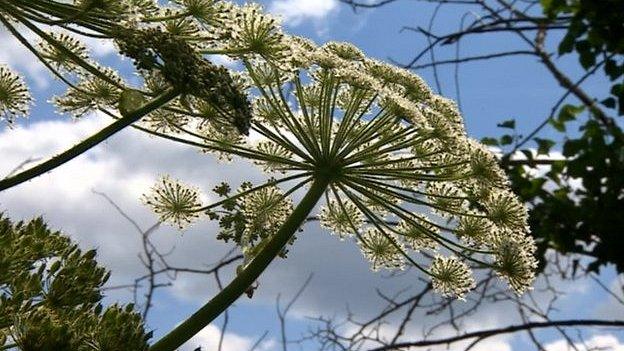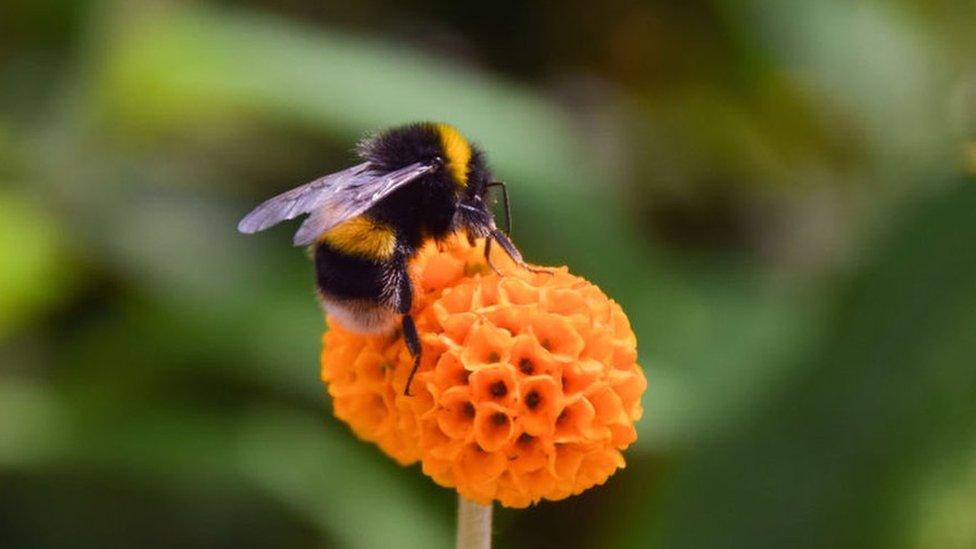Weeds twice as likely to attract bees as flowers, study claims
- Published
- comments

Scientists say weeds like this thistle are encourage pollinating insects
Farmers and gardeners usually want to get rid of weeds, but a new study suggests they shouldn't be so hasty.
Pollinators, like bees and other insects, help vegetables and fruits to grow by flying around and spreading pollen from plant to plant which allows them to reproduce.
Now scientists at the University of Sussex say that weeds like creeping thistle and common ragwort which farmers, gardeners and councils try to get rid of are better at helping pollinators than wild flowers.
Pollination is a very important part of the life cycle of plants. Insects, birds, bats and the wind take pollen between flowering plants, which means the plants can make seeds to grow more plants.
The weeds are referred to as 'injurious weeds' because they are considered harmful to crops grown by farmers.
As part of their research, the university discovered that about £10 million per year is spent controlling injurious weeds, but say plans to get rid of the plants should be reconsidered.
Why are bees so important?
Dr. Nicholas Balfour said although they recognised the weeds can be damaging to farming, there are some positives:
"We've shown that they can also be of great value to both flower-visiting and herbivorous (plant eating) insects—and shouldn't be underestimated when it comes to supporting our natural biodiversity."
But Defra - the government department responsible for the environment - says injurious weeds can pose a threat to animal health because they are sometimes toxic.
- Published12 August 2015

- Published17 July 2021

- Published21 January 2022

